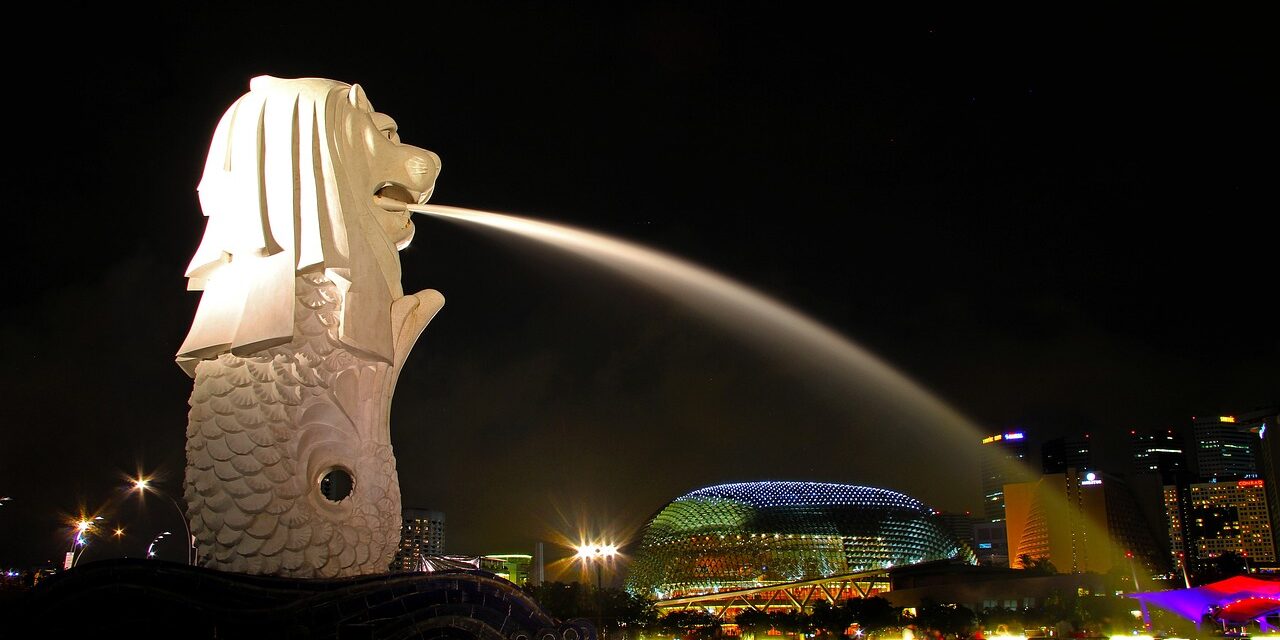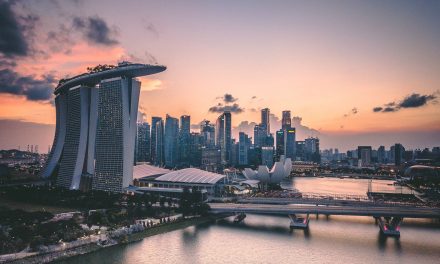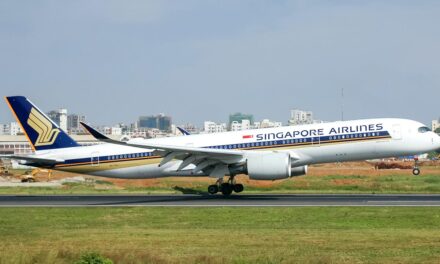Singapore’s economy grew at a strong pace in the third quarter, but Donald Trump’s return to the White House may mean more tariffs.
Singapore’s economy grew 5.4% year-on-year in the third quarter of 2024, up from 3.0% in the second quarter, thanks to a bumper performance in the manufacturing sector, the Ministry of Trade & Industry said on Friday.
On a seasonally adjusted basis, the economy expanded 3.2% year-on-year in the third quarter, up from 0.5% in the second.
“It is mainly the stronger-than-anticipated rebound in the manufacturing sector, especially as biomedical engineering and electronics clusters posted substantial growth. The electronics sector is expected to sustain its growth momentum through the final quarter of 2024 and into 2025, driven by strong external demand,” Ahmad Mobeen, senior economist at S&P Global Market Intelligence, told Diplomatic Network (Asia) on Tuesday.
Singapore’s gross domestic product is seen coming in at around 3.5% in 2024, eclipsing 2023’s 1.1% growth.
This projection was upgraded from the previous expectation of between 2.0% and 3.0%. The upgrade followed a strong performance in the first three quarters of the year, where GDP growth averaged 3.8% year-on-year.
Growth is seen tapering to between 1.0% and 3.0% in 2025, MTI said.
“S&P Global Market Intelligence projects that favorable base effects and surge in exports will contribute to a cumulative growth of 4.1% in manufacturing output for 2024 and improve further in 2025 based on the anticipated upcycle in the regional electronics trade,” Mobeen said.
“The construction sector year-over-year growth rate was also revised upwards for the third quarter from 3.1% to 3.7%. This was fueled by an increase in the certified progress payments in the public sector, more than overshadowing the decline for the same in the private sector.
“On the private sector front, though residential building works expanded, they were offset by the contraction in industrial and commercial building works.”
Trump and China
Incoming US President Donald Trump will likely shake up the global economy as he takes the helm of the world’s economic powerhouse on January 20 next year.
The Lion City will not be impervious to the shake-up, particularly with Trump’s sights set on imposing tariffs on China, alongside Mexico and Canada.
“Singapore has reportedly been used as a base by some Chinese companies to avoid scrutiny [from the US], effectively ‘Singapore-washing’ their operations,” Mobeen said.
This may lead to tariffs, and counter-tariffs from other countries, which would moderate the revival in export growth as global trade would likely to slow down, Mobeen said. It could also lead to the dampening or discouraging of Chinese manufacturing investments in Singapore, he said.
“Trump’s re-election could intensify US scrutiny of the reported ‘Singapore-washing’ practices, especially as the US might view Singapore as a potential loophole for Chinese firms circumventing tariffs. This would place Singapore in a politically sensitive position, potentially leading to negative speculation and reputational risks for the city-state.
“[The] overall impact would be minimal, as Singapore is still considered safe for capital investments.”
Trump said late Monday that he would impose a 25% tariff on all goods from Canada and Mexico with an additional 10% on any existing tariffs on Chinese products.
“We will be charging China an additional 10% Tariff, above any additional Tariffs, on all of their many products coming into the United States of America,” Trump said on social media platform Truth.
Meanwhile, China’s economic sluggishness may have negative implications for different sectors in Singapore.
China’s economy grew 4.6% year-on-year in the third quarter of this year, official data showed mid-October, slowing from the 4.7% recorded in the second quarter of the year and below the Chinese government’s 5% growth target for 2024.
“China’s slowdown poses risks to tourism, merchandise exports, and inward investments, key drivers for Singapore’s growth as domestic-oriented sectors stabilize. This could weigh heavily on 2025 growth prospects,” Mobeen said.
Other factors
Additional risks to growth include the possibility of economic activity in key trading partners slowing more than expected, amid renewed financial market tightness and a possible decline in private consumption.
Uncertainty is emanating from the escalation of geopolitical tensions in the Middle East. Although, in a positive development, a ceasefire between Israel and Hezbollah took effect on Wednesday morning.
Meanwhile, artificial intelligence-driven winds may act as a headwind for Singapore’s economy over the next year.
“On the upside, the electronics upcycle could outperform expectations, with an AI-led demand boom sustaining stronger-than-anticipated exports and manufacturing activity. This will help Singapore counterbalance the slowdown pressures to some extent.”







